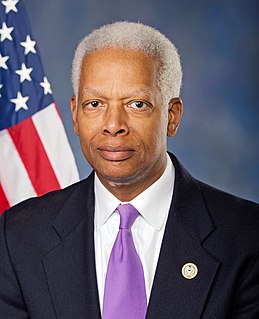A Quote by John F. Kennedy
Student loans have been helpful to many. But they offer neither incentive nor assistance to those students who, by reason of family or other obligations, are unable or unwilling to go deeper into debt. ... It is, moreover, only prudent economic and social policy for the public to share part of the costs of the long period of higher education for those whose development is essential to our national economic and social well-being. All of us share in the benefits - all should share in the costs.
Quote Topics
Assistance
Been
Being
Benefits
Costs
Debt
Deeper
Development
Economic
Education
Essential
Family
Go
Helpful
Higher
Higher Education
Incentive
Loans
Long
Long Period
Many
Moreover
National
Neither
Nor
Obligations
Offer
Only
Other
Our
Part
Period
Policy
Prudent
Public
Reason
Share
Should
Social
Social Policy
Student
Student Loan
Student Loans
Students
Those
Unable
Unwilling
Us
Well
Well-Being
Whose
Related Quotes
Both in the US and throughout the world, there needs to be a growing presence of public development banks. These banks would make loans based on social welfare criteria - including advancing a full-employment, climate-stabilization agenda - as opposed to scouring the globe for the largest profit opportunities regardless of social costs.... Public development banks have always played a central role in supporting the successful economic development paths in the East Asian economies.
The arts have long been an integral and vibrant part of our nation's cultural heritage. In its many forms, art enables us to gain a deeper understanding of ourselves and of our society. Providing us with a unique way to learn about people of other cultures, it allows us to discover all that we have in common. At its best, art can beautify our cities, encourage economic development and social change, and profoundly affect the ways we live our lives.
Student debt in the US has exploded in the past decade. One of the reason is that the private costs of attending college have risen sharply, with public higher education funding having been cut sharply. Average public funding per student was 15 percent lower in 2015 than in 2008, and 20 percent lower than in 1990. The burden of the public funding cuts has been worsened by the stagnation of average family incomes. By 2014, this figure had nearly doubled, to 35 percent of median household income.
For too long the development debate has ignored the fact that poverty tends to be characterized not only by material insufficiency but also by denial of rights. What is needed is a rights-based approach to development. Ensuring essential political, economic and social entitlements and human dignity for all people provides the rationale for policy. These are not a luxury affordable only to the rich and powerful but an indispensable component of national development efforts.
We simply cannot continue to live with a [tax] system which has so many inequities. It must be changed in such a way that each of us pays a fair share of the burden. It has been said that one man's loophole is another man's livelihood. Even if this is true, it certainly is not fair, because the loophole-livelihood of those who are reaping undeserved benefits can be the economic noose of those who are paying more than they should.
The three pillars of development (economic, social and environmental) must be strengthened together. But it is evident that two of the pillars - economic and social - are subsidiary to, and underpinned by, the third: a vibrant global ecology. Neither dollars nor our species will out-survive our planet. The earth can survive happily without people or profit






























